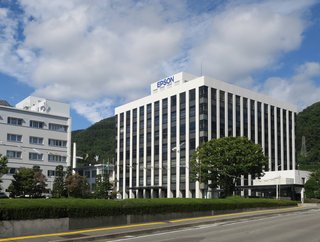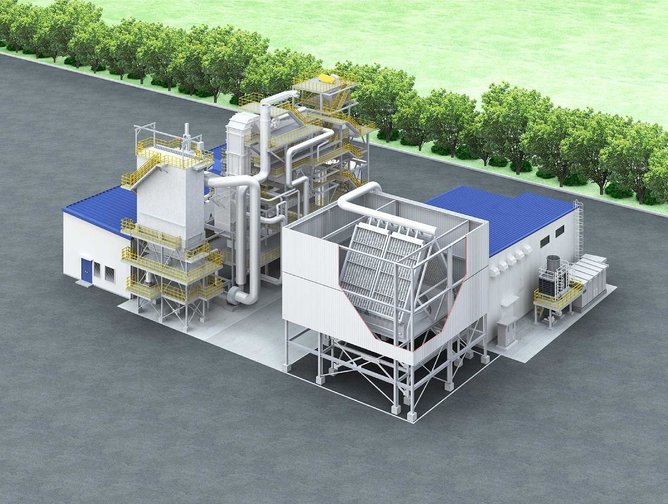Epson Goes 100% Renewable Energy and Plans Power Plant

Manufacturing is an industry notoriously difficult to decarbonise due to the sheer amount of energy required. For technology leader Epson Group, that is around 876 GWh of electricity a year – all of which is now sourced from renewables at the Japanese giant’s global sites.
This move makes Epson the first Japanese manufacturer to achieve this feat, which should reduce CO2 emissions by 400,000 tonnes.
This is a significant milestone in Epson’s stated Environmental Vision 2050 where it intends to be both carbon negative and underground resource free. Epson will also generate more of its own power, work with partners on new power sources, and reduce the energy associated with the production of its products.
For most readers, Epson will be immediately associated with office printers and projectors. While this is still very much core to the business, which was founded in 1942, sustainability pressures and cloud computing have impacted demand for physical documents.
Or so you might think? The actual numbers are still incredibly large, boosted in part by remote working which means those that do need to print have to have their own printer.
According to research from IDC, more than 3 trillion pages were printed per year pre-pandemic, and that figure is only projected to drop to around 2.3 trillion by 2025. This equates to around 4.4 million pages being printed every single minute – enough to cover 39 football fields.
Clearly, the act of printing is far from defunct, so the fact that a market leader like Epson is making impressive sustainability strides is welcome news.
It’s not all about printers, of course. Epson is also a leading manufacturer of industrial robots, PCs, microchips and more that are powering the digital revolution and factory of the future.

Epson to Build Closed-Loop Biomass Power Plant
“For eight decades, Epson has demonstrated a proactive approach to environmental action,” said Global President Yasunori Ogawa.
“Now we have successfully completed the switch to 100% renewable electricity at all Epson Group sites. This will not only help us to achieve our own goals but will also help to facilitate a broader adoption of renewable electricity within society by spreading awareness.
“Our goal of realising social sustainability is a bigger issue, one fraught with difficulty, but we will act with determination to address the issues with a spirit of creativity and challenge.”
Epson believes that its philosophy of efficient, compact and precise innovation enriches lives and helps create a better world, and it will continue to engage in practices that are aligned with this purpose, thereby advancing toward its aspirational goal of achieving sustainability and enriching communities in tandem with its customers and partners.
That commitment continues, with Epson announcing construction of its first biomass power plant, in Ilda City, Japan – expected to be operational by 2026.
The power plant will be fueled primarily by unused wood, as well as organic materials such as tree bark, mushroom culture medium, and some waste wooden pallets.
Looking further ahead, Epson aims to create a closed-loop power plant and develop technology to harness the CO2 produced during power generation.






